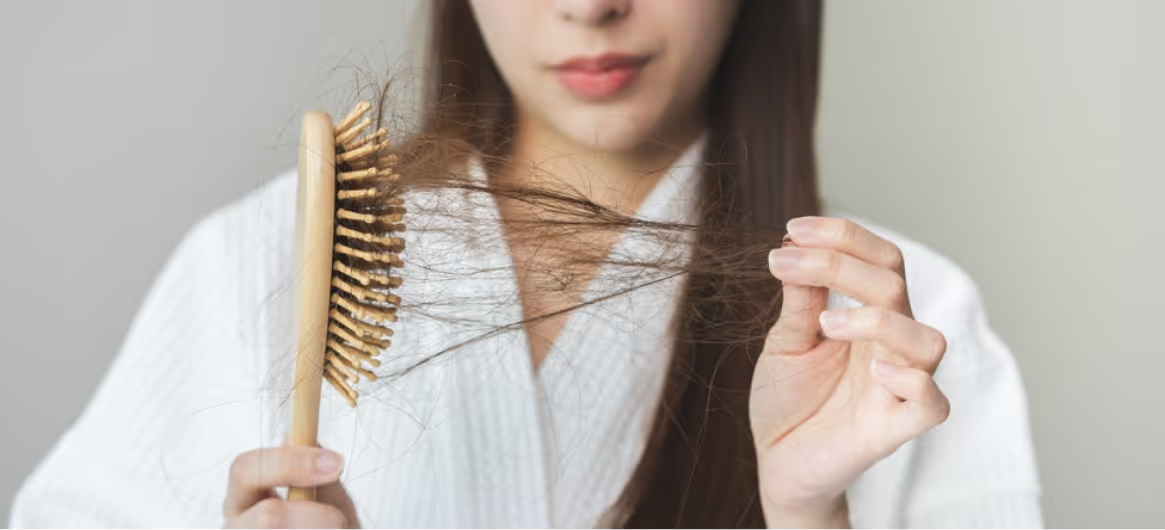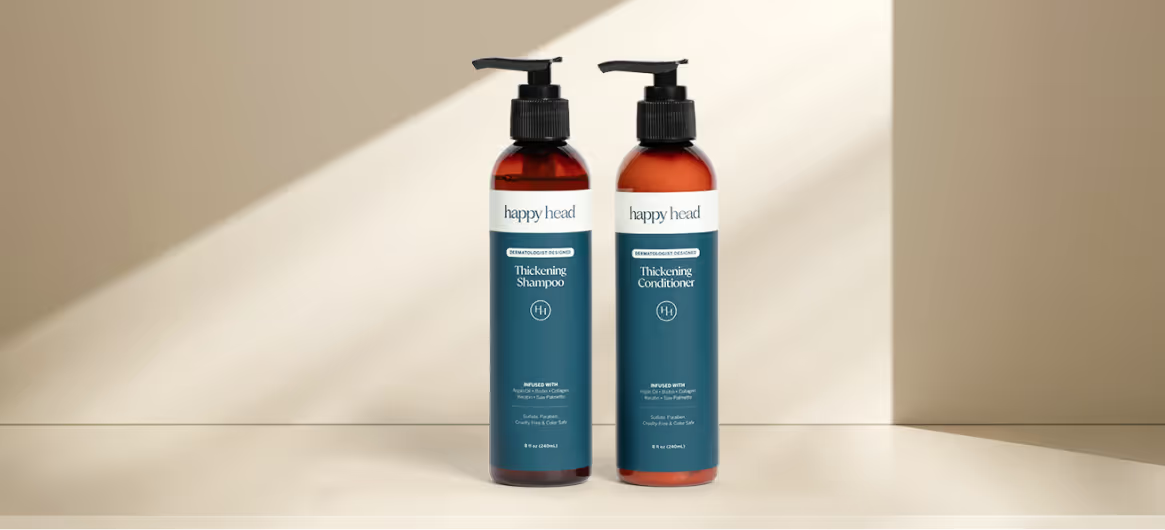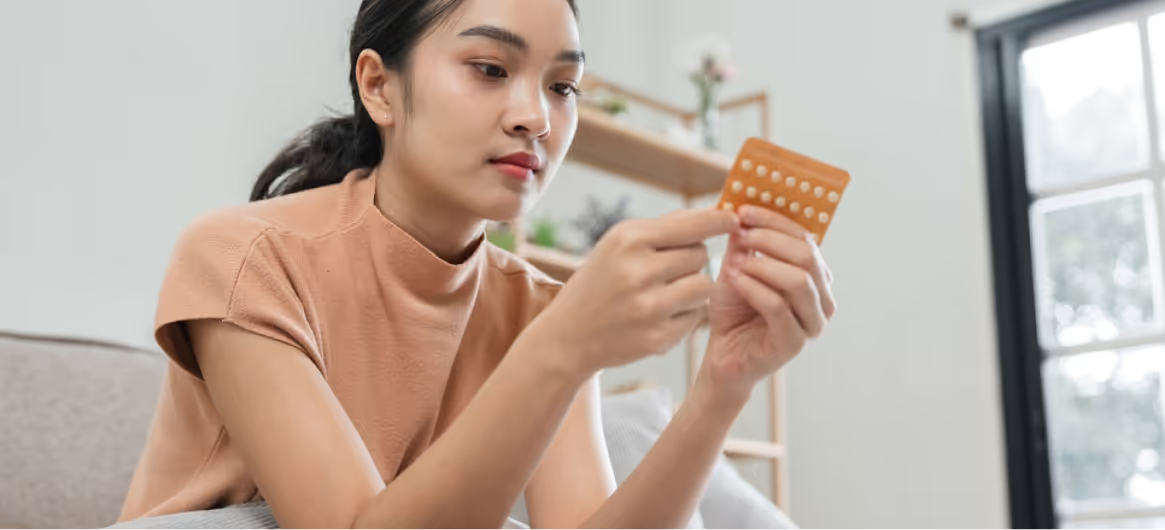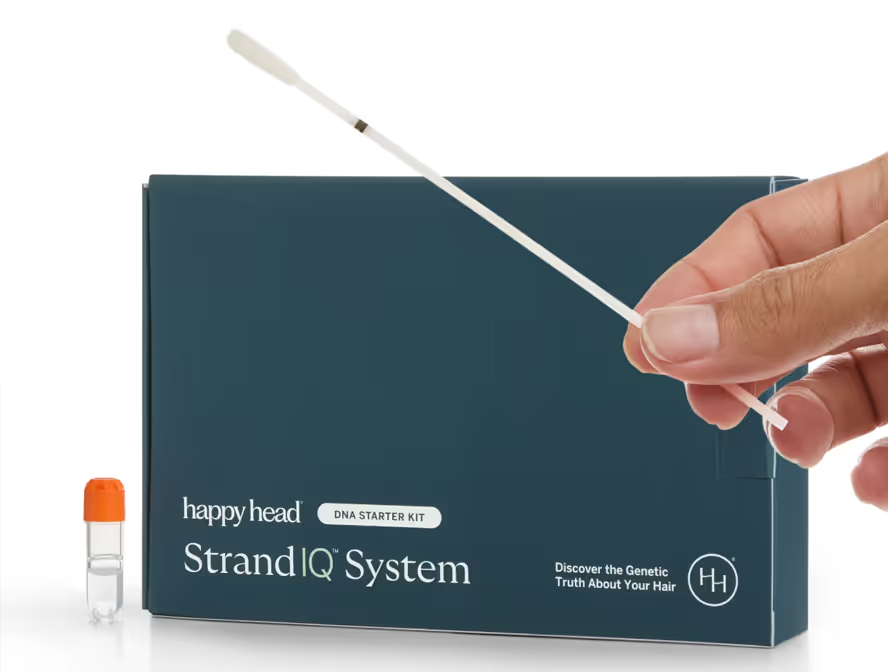Can birth control cause hair loss? The answer is complex, as hormonal contraceptives can both positively and negatively affect hair growth. Factors such as the type of birth control, individual hormone sensitivity, and genetics determine whether hair thinning occurs.
Hormonal birth control methods can impact the delicate balance of hormones that regulate the hair growth cycle. While some people experience no changes, others may notice increased shedding or thinning.
To help you understand what to expect regarding hair health while taking birth control, let’s explore how different birth control options affect hair, why hair loss may occur, and what you can do to protect and support healthy hair while using these methods.
How Birth Control Works
Hormonal birth control prevents pregnancy by altering the body’s natural reproductive cycle.
Most methods contain synthetic versions of estrogen, progestin, or both. These hormones stop ovulation, thicken cervical mucus to block sperm, and thin the uterine lining to prevent implantation.
By controlling hormone levels, birth control also influences other hormone-sensitive systems, including the hair follicles. The same hormones that regulate fertility can shift the hair growth cycle, especially in women who are genetically predisposed to hormone-related hair changes.
Types of Birth Control Pills
Birth control pills fall into two categories: combination pills (containing estrogen and progestin) and progestin-only pills (also known as the mini-pill). Combination pills are the most common and can vary in hormonal dosage and formulation.
Some contain higher-androgen index progestins, which may increase the risk of hair thinning by mimicking male hormones. Others use low-androgen index progestins, which are gentler on hair.
Progestin-only pills are often used for women who cannot take estrogen, but they may also impact hair growth depending on individual sensitivity. Your dermatologist or doctor can help identify a formulation that minimizes unwanted hair effects.
Other Forms of Birth Control and Their Effect on Hair
Non-pill hormonal contraceptives, such as hormonal IUDs, implants, injections, and patches, can also affect hair growth due to their systemic hormonal effects.
These methods typically use progestin, which may alter the hair growth cycle, especially in people with a family history of androgenetic alopecia. For instance, the progestin in some hormonal IUDs has androgenic properties that could lead to hair thinning over time.
Even though these methods don’t contain estrogen, they still influence hormone levels throughout the body. Non-hormonal options, such as the copper IUD, do not directly affect hormones and are less likely to contribute to hair loss.
How Birth Control Affects Hair Growth
Hormonal birth control can influence the hair growth cycle by altering androgen levels in the body. Androgens, such as testosterone and dihydrotestosterone (DHT), are known to shrink hair follicles in genetically susceptible individuals, leading to thinner, finer hair.
Some birth control formulations reduce free androgen levels and may actually improve hair growth in cases of androgenic alopecia.
Others, particularly those with higher androgenic activity, can disrupt the normal hair cycle, shortening the growth (anagen) phase and prolonging the shedding (telogen) phase.
The response varies depending on individual sensitivity, genetic predisposition, and the specific hormonal composition of the contraceptive being used.

Why Some People Lose Hair on Birth Control
Hair loss from birth control often results from hormonal fluctuations that disrupt the natural hair growth cycle.
When estrogen and progestin levels shift, either when starting, switching, or stopping a contraceptive, the body may respond by pushing more hairs into the telogen (shedding) phase.
Additionally, some progestins have androgenic effects that can mimic male hormones, leading to follicle miniaturization in those genetically predisposed to androgenetic alopecia. This sensitivity makes certain women more prone to noticeable thinning or shedding.
Birth Control and Hair Loss After 2 Years of Using
Hair loss can sometimes appear years after starting birth control, especially in those with underlying genetic susceptibility. Long-term use may gradually alter hormone balance, increasing sensitivity to androgens or amplifying a slow-progressing hair thinning pattern.
In such cases, the hair follicles may become increasingly affected over time, even without a recent change in contraception. This type of delayed-onset hair loss often resembles female-pattern thinning and may go unnoticed until a significant volume of hair has been lost.
Risk Factors for Hair Loss
Not everyone will experience hair loss from birth control, but certain factors can increase the risk. These include both genetic and lifestyle components:
- Genetic predisposition: A family history of androgenetic alopecia or pattern hair loss increases sensitivity to hormonal fluctuations.
- High-androgen index contraceptives: Pills containing levonorgestrel or norethindrone may trigger hair thinning in sensitive individuals.
- Underlying hormonal imbalances: Conditions such as PCOS can worsen hair loss when combined with hormone-based contraception.
- Nutrient deficiencies: Low levels of iron, vitamin D, or biotin may exacerbate shedding.
- Stress or illness: Physical or emotional stress can compound hair loss related to hormonal changes.
Birth Control Pills and Hair Loss: Is It Permanent?
Hair loss caused by birth control pills is often temporary, especially if it's related to telogen effluvium, a common shedding response to hormonal changes.
Once the body adjusts to the new hormone levels, the hair cycle typically stabilizes, and shedding decreases within 6 to 9 months. However, in women with a genetic predisposition to androgenetic alopecia, birth control may accelerate permanent thinning.
In such cases, hair may not fully regrow without treatment. A dermatologist can assess the underlying cause and recommend targeted hair growth solutions to stimulate regrowth or slow further loss.
How To Treat Hair Loss From Birth Control
Managing hair loss related to birth control requires a targeted, multifaceted approach. Treatment depends on the severity of shedding, the type of hair loss involved, and whether there’s an underlying genetic predisposition.
A board-certified dermatologist can help determine the most effective combination of therapies. Common treatment options include:
- Topical minoxidil: This over-the-counter or prescription solution can prolong the growth (anagen) phase and stimulate regrowth in thinning areas.
- Spironolactone: Often prescribed off-label, spironolactone reduces the effects of androgens on hair follicles, making it especially helpful for women with hormonally driven thinning.
- Platelet-rich plasma (PRP) therapy: Involves injecting concentrated platelets from your own blood into the scalp to promote follicle repair and new growth.
- Low-level laser therapy (LLLT): A noninvasive in-office or at-home light treatment that enhances cellular metabolism in hair follicles and may improve density over time.
- Nutritional optimization: Addressing iron, vitamin D, zinc, and biotin deficiencies can support healthy hair regrowth.
- Switching contraceptives: Choosing a lower-androgen index birth control pill may help reduce future shedding.
Natural Ways To Support Hair Growth While on Birth Control
Even while using hormonal contraception, there are effective, natural strategies to support healthy hair growth. These approaches focus on creating an optimal internal and external environment for the hair follicles.
- Maintain a nutrient-rich diet: Prioritize foods high in protein, iron, zinc, omega-3 fatty acids, and biotin, which are key nutrients for hair structure and growth.
- Supplement wisely: If blood tests reveal deficiencies, supplements such as iron, vitamin D, and biotin may help restore balance and improve hair strength.
- Reduce stress: Chronic stress raises cortisol levels, which can disrupt the hair cycle. Practices like yoga, meditation, or regular exercise can help.
- Scalp care: Gently exfoliating and massaging the scalp improves circulation and promotes follicle health.
- Avoid heat and harsh chemicals: Limit styling practices that damage the hair shaft, such as excessive heat, tight hairstyles, or chemical treatments.

- Use gentle, pH-balanced products: Choose thickening shampoos and conditioners free of sulfates and parabens to avoid scalp irritation and dryness.
- Sleep and hydration: Quality sleep and adequate water intake are essential for cellular repair and overall hair vitality.
When To Talk to a Doctor
If you notice increased hair shedding, thinning at the crown or temples, or a widening part while on birth control, it’s important to consult a dermatologist. Early intervention can prevent further loss and improve treatment outcomes.
Seek medical advice if hair loss persists for more than three months, worsens over time, or is accompanied by other symptoms such as acne, irregular periods, or fatigue, which may indicate an underlying hormonal or nutritional imbalance.
Can Birth Control Cause Hair Loss? The Bottom Line
Hormonal birth control can affect hair growth by altering hormone levels, potentially causing thinning or increased shedding in women sensitive to these changes. Factors such as genetics, the type of contraceptive, and overall health influence the likelihood and severity of hair loss.
So, can birth control cause hair loss? Yes, it can, but the loss is usually temporary, and treatments are available to help restore normal growth. With proper diagnosis and treatment, including medication adjustments and supportive therapies, hair regrowth is achievable.
Talk to a board-certified dermatologist to discuss your goals and find the solution that is best for you.
Frequently Asked Questions
Can birth control pills cause hair loss?
Yes, some birth control pills can trigger hair shedding or thinning, especially in women sensitive to hormonal changes. This is usually due to the synthetic hormones affecting the hair growth cycle, particularly by pushing hairs into the shedding (telogen) phase.
Which birth control is less likely to cause hair loss?
Low-androgen index birth control pills, such as those containing drospirenone or desogestrel, are generally less likely to cause hair loss. These have a reduced impact on hormones that can shrink hair follicles and disrupt the natural growth cycle.
How can I prevent hair loss while on birth control?
To help prevent hair loss, choose a low-androgen birth control option and maintain a healthy lifestyle. A balanced diet, stress management, and scalp care can also support hair health. Always discuss hormonal concerns with your doctor before starting a new method.
Will hair loss from birth control grow back?
In many cases, hair loss from birth control is temporary and reversible. Once your body adjusts to the hormones or you stop the medication, hair typically regrows, though it may take several months. A dermatologist can help monitor progress and recommend treatments.












